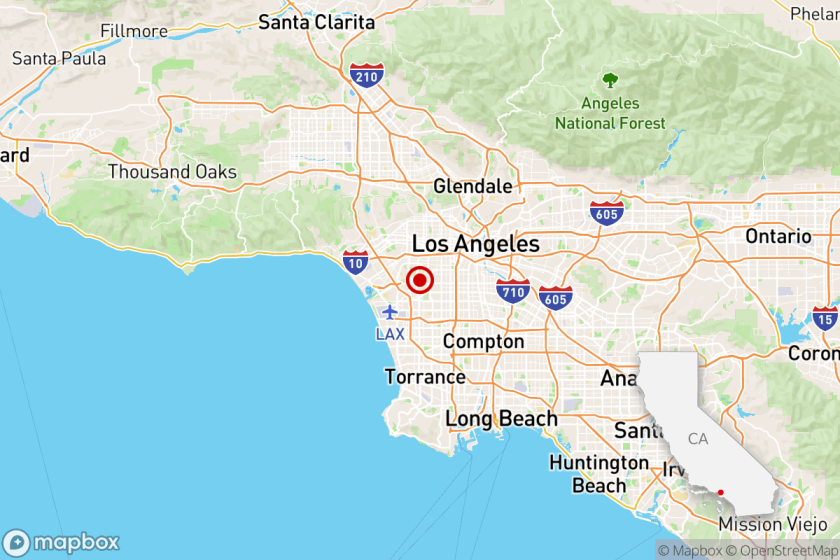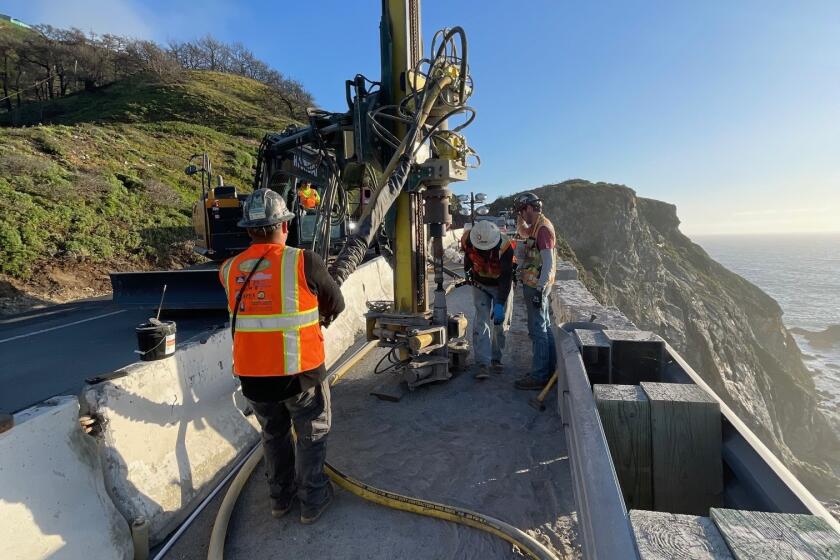Fresno’s Concentration of Poor Tops in U.S., Study Says
The mayor of Fresno acknowledged Wednesday the findings of a new national study that casts a spotlight on poverty in his city, but he insisted that Fresno had done much to address past social and economic inequities.
“We are not where we want to be, but thank God we are not where we used to be,” Mayor Alan Autry said.
He was responding to findings published Wednesday by the Brookings Institution, a nonpartisan Washington-based think tank.
Fresno is not the poorest city in the nation, but its poverty is concentrated more heavily than in any other large city, the study found.
Drawing on data from the 2000 census, the study examined extremely poor neighborhoods with high crime, poor housing and a lack of stable jobs and good schools in 50 of America’s largest cities.
Fresno, a city of 450,000 people, placed first, ahead of New Orleans, Louisville, Miami and Atlanta as a city where poor people are concentrated in impoverished neighborhoods.
Long Beach ranked sixth on the list and Los Angeles was 14th.
Alan Berube, primary author of “Katrina’s Window: Confronting Concentrated Poverty Across America,” said the study was inspired by the deep economic and racial fissures exposed in the aftermath of Hurricane Katrina. The vast majority of New Orleanians stranded in the city were African American and poor.
“The segregated, concentrated poverty that existed there exists in many other cities as well,” Berube said.
The study used census tract data to examine areas in which 40% or more of residents live below the federal poverty threshold, the average annual household income barely exceeds $20,000 and four in 10 adults are unemployed and had ceased looking for work.
According to the study, 43.5% of all poor people in Fresno live in “extreme poverty neighborhoods,” as do 30.7% of impoverished Long Beach residents and 22.4% of the financially strapped in Los Angeles.
Berube said concentrated poverty compounds the effect of being poor, because substandard public housing, limited job opportunities, poor schools and high crime all cluster in one area.
Autry said Fresno had made great strides in providing equal access to resources and improving the quality of life for its residents.
Acknowledging that skyrocketing home prices had contributed to the entrapment of poor people, Autry said that since 2000, $45 million in bond money had been invested in neighborhood infrastructure in the poorer parts of town.
Fresno’s unemployment rate is at a 25-year low, having dropped from 15% to 7.9% in the last five years, he said.
On Wednesday, the city launched a technology initiative called Fresno Connect, which will put computer labs and multimedia centers in neighborhood centers throughout the city.
Although supportive of the mayor’s efforts, some community leaders said they would like to see more private and public investment in depressed Fresno neighborhoods.
“In terms of philanthropy and federal funds, we’ve been overlooked for years,” said Keith Kelley, president and CEO for Fresno West Coalition for Economic Development, a nonprofit community group that offers job training and other services to 36,000 predominantly minority residents of West Fresno.
He added: “People just don’t get excited about Fresno.”
Rev. Paul Binion II, pastor at Fresno’s Westside Church of God, said private developers had generally steered clear of the poorer neighborhoods of West Fresno, where there is no local bank or credit union and the community only recently got a supermarket.
“They figure it’s not a good investment,” Binion said.
“But it is. Poor folks have little discretionary income and what they do have, they spend on food and clothes.”
More to Read
Start your day right
Sign up for Essential California for news, features and recommendations from the L.A. Times and beyond in your inbox six days a week.
You may occasionally receive promotional content from the Los Angeles Times.







